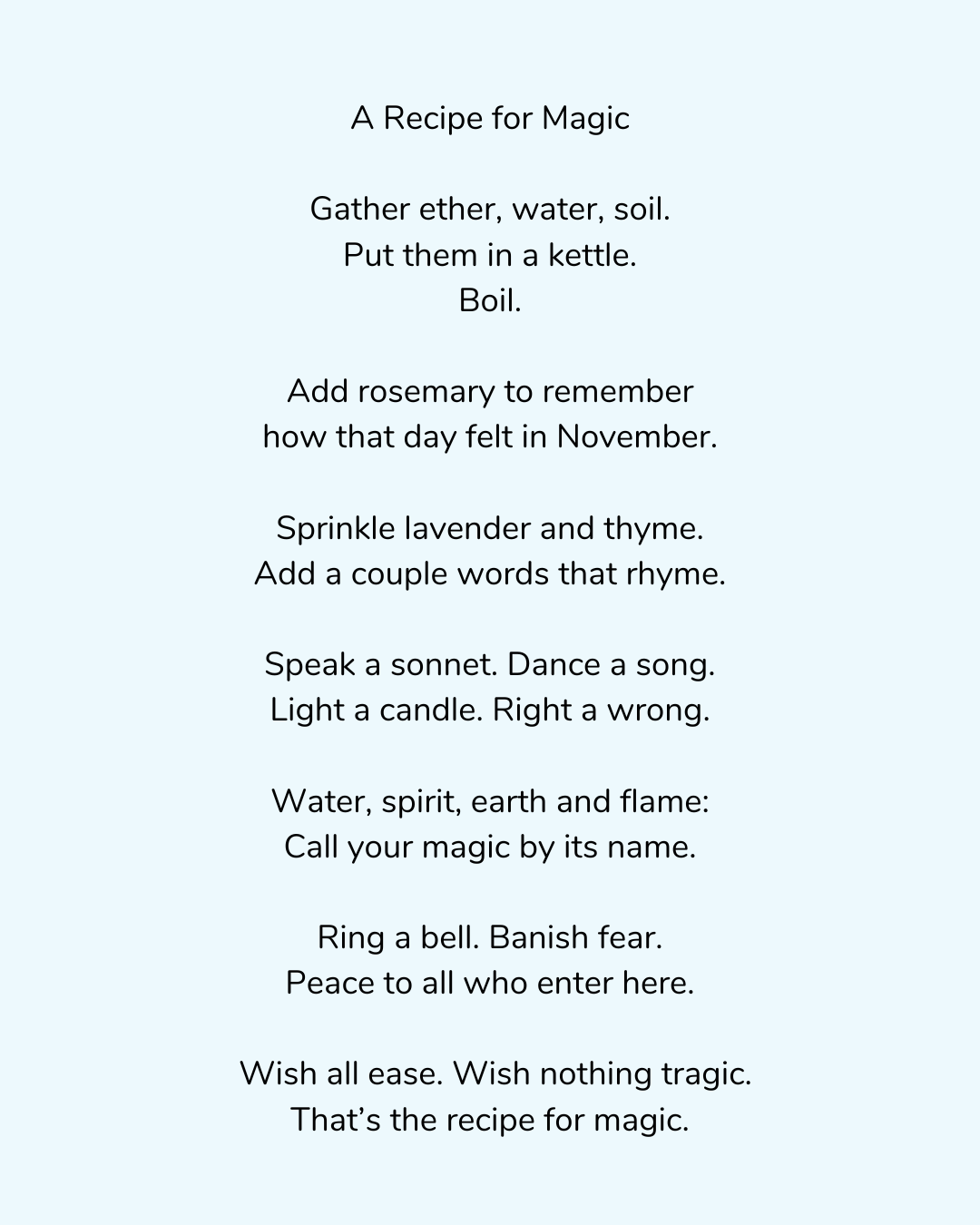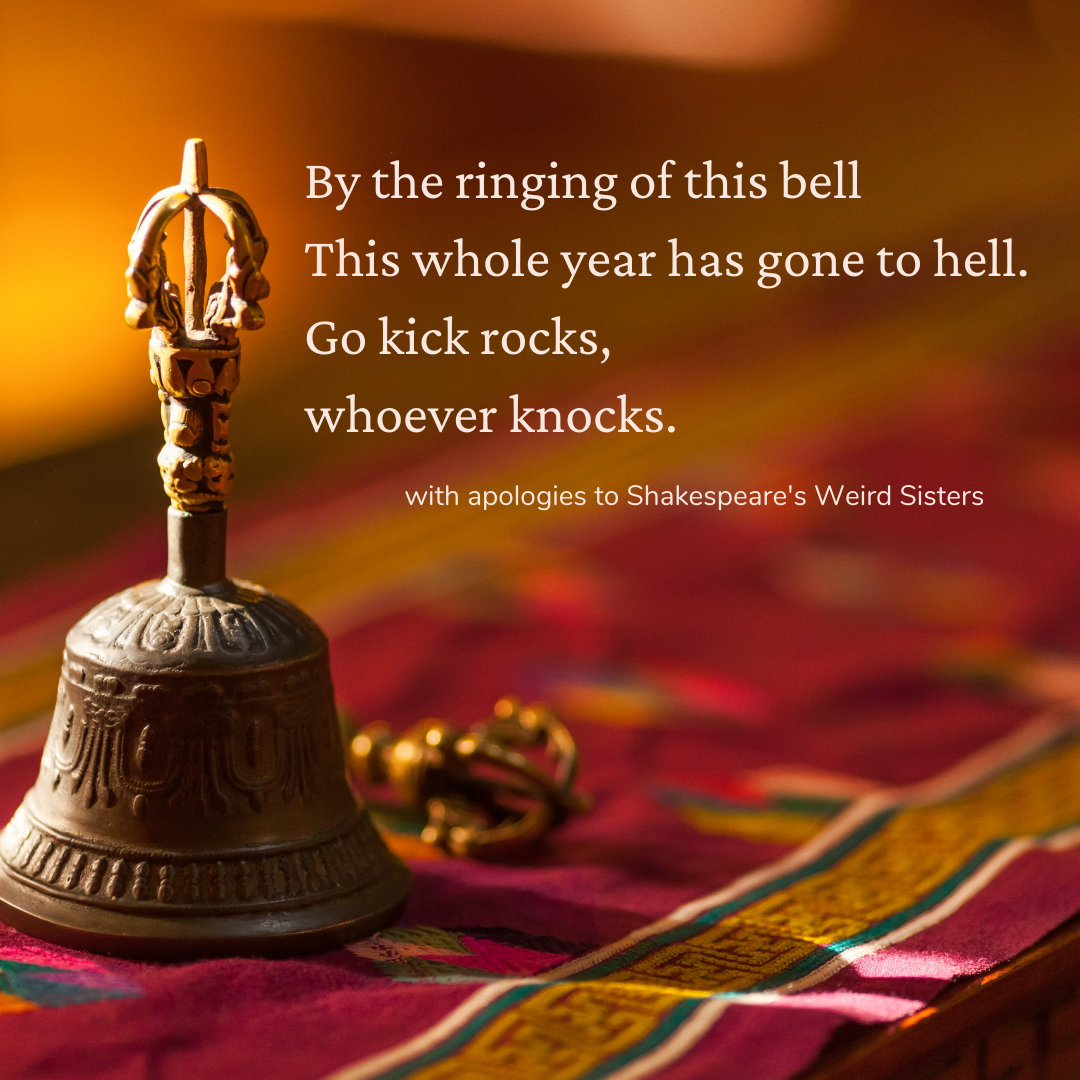There’s a marvelous poem by Wallace Stevens called “Thirteen Ways of Looking at a Blackbird”, which you can read here. And so it came to pass (in January of this year), that my poetry sisters and I decided to write a poem with different ways of looking at a (noun of choice). Only thirteen is a lot of ways, so we went with seven.
Due to a recent eyeball issue (“an acute hemorrhagic posterior vitreous detachment”) which leaves me with a weird veil in the vision of my left eye, I AM CHEATING and sharing a poem I wrote years ago, which appears in my chapbook The Universe Comes Knocking (signed copies available here).
1
Shelling peas after a day at the farmer's market, I am transported
to one of three mismatched chairs at the formica dinette table
in my grandmother's postage-stamp kitchen,
trying to keep pace with her, my small efforts no match
for the experience in her old hands.
2
I pop the stem of a pea pod back,
pull the string down the outside curve,
unzipping a jacket, only to find
a row of fat green pearl buttons inside.
3
Pea pods are the oysters of the garden –
inside some pods, a string of perfect pearls
in others, disappointment.
4
Pulling a string along the inside curve of a pea pod,
I create Thumbelina's canoe.
5
On first opening the outside curve of a pod,
I spy one row – a steady green caterpillar;
opening further, the hinge unclasps:
every other pea held to opposite sides
of this green womb by a tiny umbilicus.
6
Unzipping pods to strip reveal their insides,
I think about Charles Darwin:
Here three are fat and one is left unformed;
there, seven peas crowd so tightly their sides are flat,
blocks in a row that do not wish to separate.
Opening the last one, peas burst out;
avoiding my bowl, my hands,
they scatter four feet away on the floor.
The cat lies in wait to strike them.
7
I feel that I should write thank-you note
To the compost-bound empty husks:
Dear mother pods,
You have given me your children.
I had to pry them loose from the slight green cords
that bound them to you, through which
you gave them life and nurtured them.
Your job now over, I consign you to the compost heap.
Please know that before you can decay,
I will have eaten your children
dressed only with butter, salt and some pepper.
Read my sisters’ poems here:
Tanita
Mary Lee
This week’s Poetry Friday roundup is hosted by Irene Latham at Live Your Poem.























